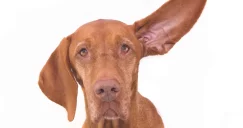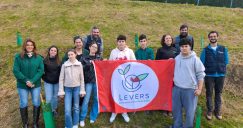From January to April 2025, the Slovenian Learning Venture led by Zavod Kersnikova launched its OpenLab programme. The design of OpenLab was the result of a collaborative effort involving experts from various fields, taking place between March and December 2024. It marked the first time Kersnikova developed such a programme through this level of interdisciplinary co-creation. A series of meetings and design workshops led to a hands-on, transdisciplinary workshop series aimed at engaging children aged 9 to 15 in critical conversations and creative actions around food sustainability and climate challenges.
At the time, Kersnikova’s own Makerspace (Rampa) was not operational due to the aftermath of a fire in 2024. Fortunately, Rog Centre—a hub for creativity, making, and innovation in the heart of Ljubljana—became the perfect home for LEVERS OpenLab. It provided an environment that mirrored the programme’s core values: collaboration, experimentation, and open access to knowledge and tools.
The programme blended science, creativity, hands-on experimentation, and systems thinking in a way that gave participants the freedom to observe, question, and ultimately reimagine how food is produced, consumed, and valued.
Getting into it
The journey began with an introductory workshop led by artist and mentor Bibi Erjavec, setting the stage for critical inquiry around food and climate. The workshop also served as a testing ground for the Phygital Tool, designed by the DYPALL Network—an innovative learning tool that blends physical and digital strategies to support democratic participation.
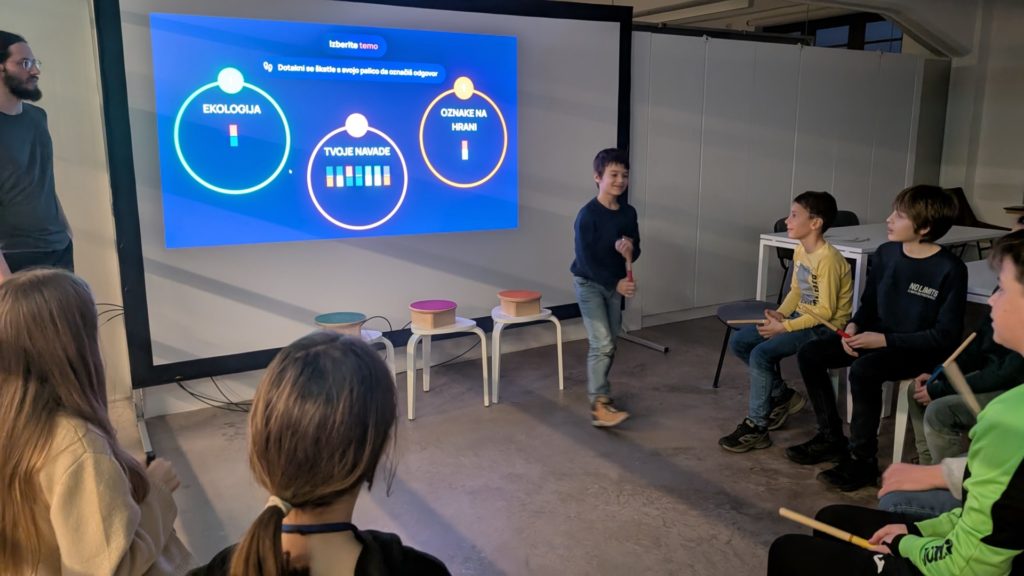
Forget about “regular” food
In the following sessions, the children explored alternative food sources and production methods.
With Bibi Erjavec, participants learned about spirulina cultivation, building simple bioreactors to understand how this nutrient-rich algae could play a role in sustainable nutrition.
They then moved on to mushroom growing, guided by Rok Zalar and Primož Turnšek of Gobnjak, discovering how fungi can support regenerative systems and local food resilience.
The children left with their own jars of spirulina and oyster mushroom substrate, knowing that with care and patience, they might soon be eating food they had grown themselves.
These insights came full circle in a Global Education workshop led by Živa Kavka Gobbo (Focus Association for Sustainable Development), where participants examined the hidden impacts of everyday food and traced global supply chains to understand their environmental consequences.
A definite highlight was the FoodLab session, where participants cooked spirulina pasta with oyster mushroom sauce—a sensory and symbolic act of bringing their learning to the table.
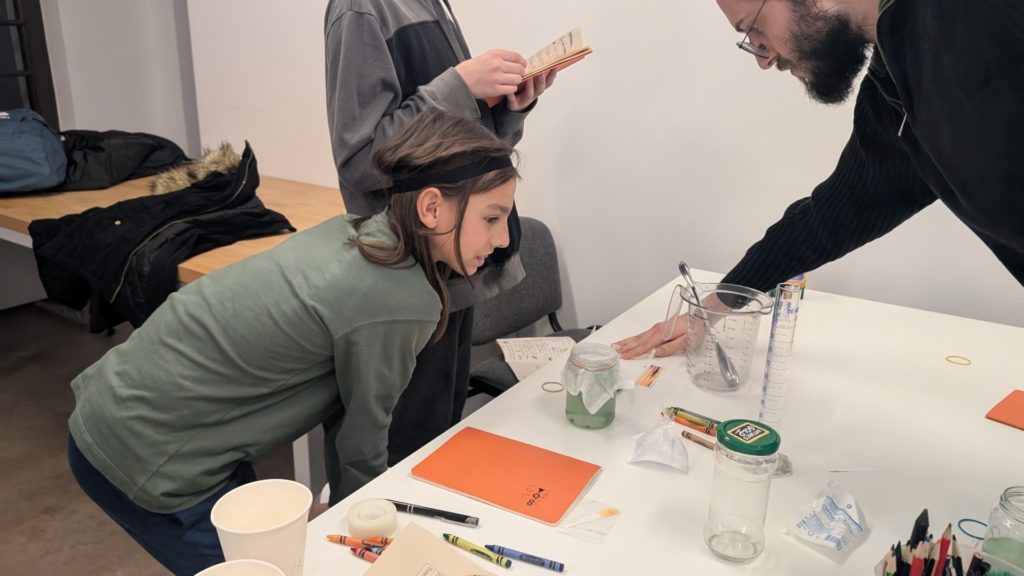
Digging into the data
In the fifth workshop, Damjana Žnidar from the Agricultural Institute of Slovenia brought a more data-driven, investigative approach. Participants explored where food in Slovenia comes from, how much is produced, imported or exported, and what food security might look like in the future. They examined infographics, discussed data reliability, and created visual maps using seeds, translating information into meaningful visual narratives—bridging agriculture, creativity, and critical thinking.
OpenLab: The World Is Your Oyster
The final three workshops marked the OpenLab phase—a time for invention, exploration, and youth-led action. Working in small groups, participants developed their own project ideas inspired by the issues that resonated with them—such as food waste, packaging alternatives, or future crops.
Each group brought a unique perspective:
- One designed and illustrated a cookbook.
- Another experimented with fermenting locally grown vegetables, blending tradition with sustainable practice.
- A third created artwork using natural dyes from food.
- And one group developed a conceptual prototype called “Sonar MP3”, imagining future ways to experience or communicate food and nutrition.
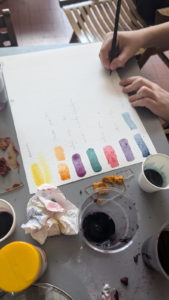
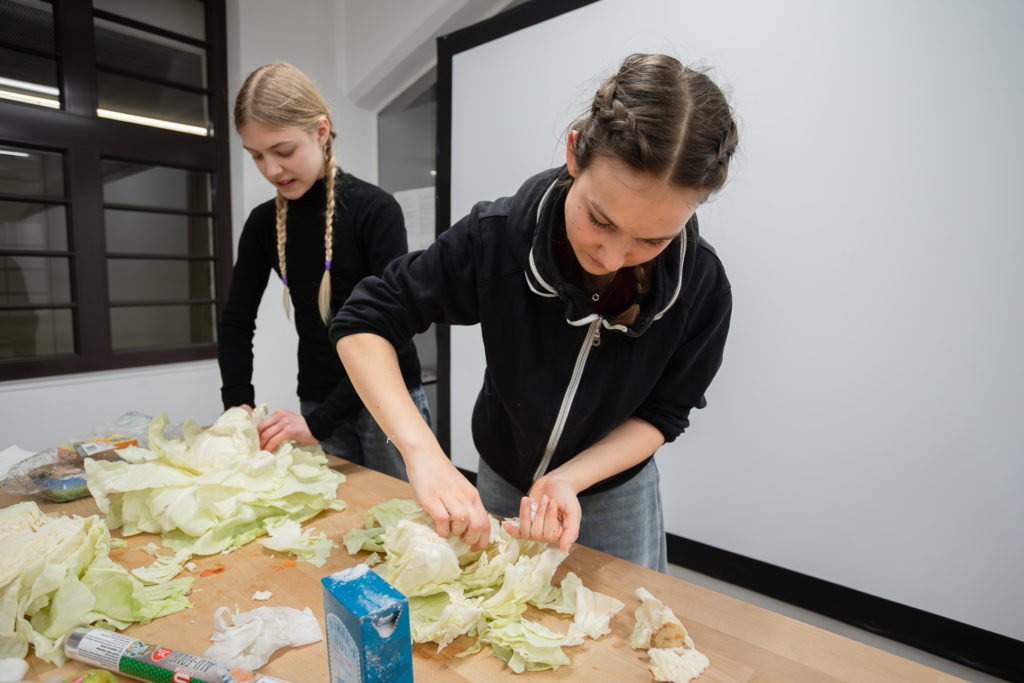
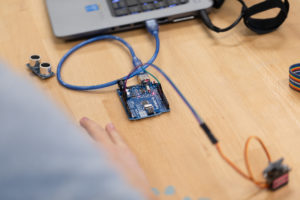
These projects embodied the spirit of OpenLab: empowering young people to explore, create, and engage with food and climate issues in meaningful, self-directed ways.
Throughout the workshops, collaboration wasn’t just among participants—it was embedded in the very structure of the programme. Experts from different disciplines came together, often speaking different professional languages, but united in the goal of empowering youth to think critically, act creatively, and approach complex issues with confidence.
And perhaps most importantly, the participants discovered that change starts with curiosity, collaboration, and the courage to try.





